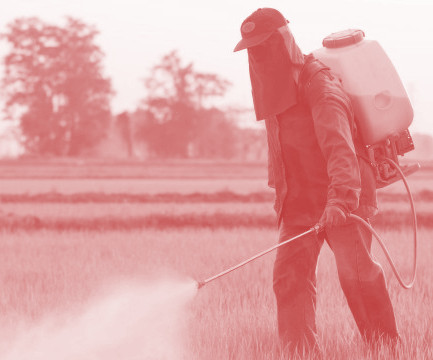Local Roundup claim launched
 A Melbourne gardener has launched legal action against Monsanto in Australia’s first Roundup lawsuit.
A Melbourne gardener has launched legal action against Monsanto in Australia’s first Roundup lawsuit.
Fifty-four-year-old Michael Ogliarolo ran his own landscape gardening business until 2015 when he retired due to ill health.
Mr Ogliarolo used Roundup herbicide for over 18 years in his work, and was diagnosed with non-Hodgkin's lymphoma in 2011.
His lawyer Tony Carbone says Monsanto failed to warn the gardener that the use of Roundup products was dangerous and capable of causing serious injuries, loss and damage.
“What we're saying is that due to the heavy exposure, no warnings on the label to say; ‘Look, wear a mask, wash your hands, do this and do that’, consequently he was diagnosed with non-Hodgkin's lymphoma,” Mr Carbone said.
The case comes after three trials in the US ruled in favour of workers who were exposed to the chemicals, ordering billions in compensation.
The lawyer says he would bring international experts over to Australia if needed.
But local experts have slammed what one described as “glyphosate mania”.
“The overwhelming opinion of experts is that glyphosate is safe,” says Dr Joshua Mylne - an expert in biochemistry and plant biology at the University of Western Australia.
“People forget ‘the dose maketh the poison’,” he said.
“The scary data sheets that come with herbicides are for the concentrated compound, plus all the chemicals needed to dissolve it, plus the detergents needed to allow the chemical to penetrate the leaf – the concentrate is a toxic cocktail to be sure.
“However, the concentration at which what’s in the bottle is applied is usually 1,000 times less, or even more dilute than that. What might remain behind days or weeks after spraying might be many orders of magnitude more dilute than what it was applied at.
“Our exposure to toxins is a constant - some exposure is more noticeable than others.
“One of our favourite drugs, alcohol, is quite toxic and a known carcinogen yet we pour it down our throats with vigour every weekend.
“It is considered a carcinogen by Cancer Australia as well as the IARC who ruled that for ethanol there was ‘sufficient evidence (highest IARC classification of carcinogenicity)’ for it causing cancer of the oral cavity, pharynx, larynx, oesophagus, colorectum, liver (hepatocellular carcinoma), and female breast,” he said.
“I wish people would trust experts and keep some perspective.
“If you seriously want to lower your cancer risk, keep using Roundup and stop drinking. I am disappointed to think Australia might go down the same road as the hyper-litigious USA.”
Professor Ivan Kennedy - an expert in risk assessment and environmental fate of pesticides at the University of Sydney - says that the “The International Agency for Research on Cancer made a bad mistake in claiming glyphosate was a probable cause of cancer”.
“There is no convincing evidence for this and much evidence gathered over 40 years about it as the safest herbicide known.
“Any replacement will be more likely to be damaging to human health.
“Of course, I also agree … that it is unfortunate farmers are so reliant on glyphosate and that alternatives as good aren’t available… [but] finding a replacement as good is very unlikely.
“The precise specificity for affecting plants only by a chemical inherently so safe to animals is unlikely to be repeated. I sincerely regret that the law is being used so badly in this case.”








 Print
Print